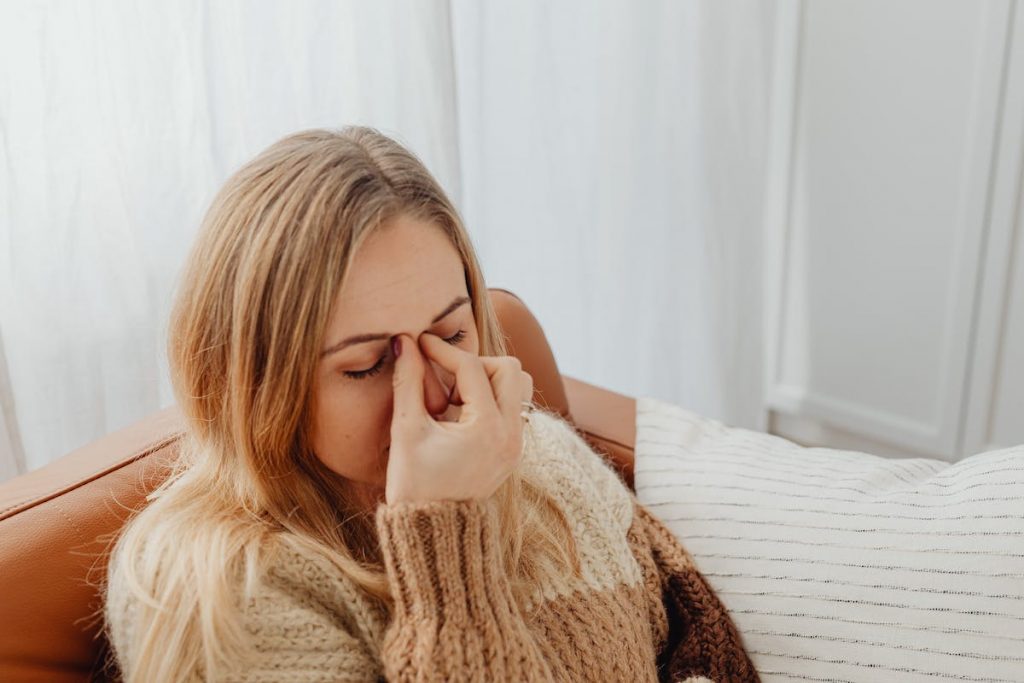- Sinus problems caused by inflammation or infection lead to blockages, pain, and discomfort.
- Symptoms include congestion, facial pain, headaches, fatigue, coughing, and sometimes fever and difficulty breathing.
- Home remedies include nasal irrigation and avoiding allergens, while severe cases may require antibiotics or surgery.
- Prevention includes staying hydrated, avoiding allergens, using a humidifier, and practicing good hygiene.
Sinus problems are a common issue that affects millions of people worldwide every year. It can cause discomfort and pain, and in severe cases, it may lead to complications that affect one’s overall health. If you’re one of the millions of people struggling with sinus problems, you’re not alone, and there are things you can do to manage and prevent them.
This blog will delve into the causes and symptoms of sinus problems, as well as the different remedies and treatments available. Here are practical tips and suggestions that can help alleviate your symptoms and improve your overall well-being.
What are Sinus Problems?

The sinuses are air-filled cavities located around the nose and forehead. Sinus problems occur when these cavities become inflamed or infected. This inflammation can be caused by a variety of factors, including allergies, infection, a deviated septum, or nasal polyps. When the sinuses become inflamed, they swell, resulting in a blockage that prevents the normal flow of mucus. This blockage can cause pain, pressure, and discomfort.
Symptoms of Sinus Problems
The symptoms of sinus problems can vary from person to person, but they typically include the following:
- Congestion or a runny nose
- Facial pain or pressure
- Headaches
- Fatigue
- Coughing
- Sneezing
In severe cases, sinus problems can also cause a fever, difficulty breathing, and a sore throat. If you’re experiencing any of these symptoms, it’s essential to seek out a trusted Ear, Nose, and Throat (ENT) specialist to help you determine the underlying cause of your sinus problems. A good ENT specialist can also provide you with a personalized treatment plan to alleviate your symptoms and prevent them from recurring.
Remedies for Sinus Problems
There are several things you can do at home to alleviate your symptoms and promote healing. Nasal irrigation is one of the most effective remedies for sinus problems. This involves flushing out the sinuses using a saline solution or a neti pot. Additionally, staying hydrated, avoiding allergens, and keeping the air moist can help relieve sinus pressure and make it easier to breathe.
Treatments for Sinus Problems
If your sinus problems are severe or last for an extended period, your doctor may recommend treatments such as the following four:
Antibiotics
Antibiotics are used to treat sinus infections caused by bacteria. They work by killing the bacteria causing the infection and helping alleviate symptoms.
Nasal steroids
Nasal steroids are a type of nasal spray that helps reduce inflammation in the sinuses. They work by reducing swelling and allowing mucus to drain more effectively.
Decongestants
Decongestants are used to relieve congestion and reduce sinus pressure. These can come in both oral and nasal forms, but be sure to follow your doctor’s recommendations when using them.
Allergy shots
If allergies are causing your sinus problems, allergy shots may be an effective treatment option. These shots work by gradually exposing you to small doses of allergens, helping your body build up tolerance and reducing symptoms.
In extreme cases, surgery may be necessary to correct structural issues like a deviated septum or nasal polyps. However, surgery is typically only recommended after all other treatment options have been exhausted.
Prevention of Sinus Problems
There are steps you can take to prevent sinus problems from occurring in the first place. Knowing these steps can help you avoid the discomfort and pain associated with sinus problems. Some preventive measures include the following four:
Staying hydrated
Staying hydrated helps thin out the mucus in your sinuses, making it easier to expel. Aim for at least eight glasses of water a day. You can also increase your fluid intake through hot soups and herbal teas.
Avoiding allergens
If you know you have allergies, it’s essential to avoid triggers that can cause a flare-up. This could include pet dander, pollen, or dust mites. Make sure to keep your home clean and free of potential allergens.
Using a humidifier
Dry air can irritate the sinuses and make it harder to breathe. Using a humidifier can add moisture to the air, making it easier for your sinuses to drain. You can also try inhaling steam from a bowl of hot water to help loosen up the mucus.
Practicing good hygiene
Washing your hands frequently and avoiding touching your face can help prevent infections that may lead to sinus problems. If you have a cold or flu, make sure to wash your hands thoroughly and cover your nose when sneezing or coughing.
By taking active steps to prevent and manage sinus problems, you can reduce your chances of experiencing discomfort and improve your overall well-being.
Dealing with sinus problems might seem daunting, but understanding the causes, recognizing the symptoms, and adopting appropriate treatment and preventive measures can go a long way in managing this common health issue. Remember, everyone’s body is unique, and what works well for one person may not work as well for another. If you’re struggling with sinus problems, don’t hesitate to seek professional medical help. Always listen to your body and take the necessary measures to maintain your health. Here’s to a healthier, sinus-problem-free life!


